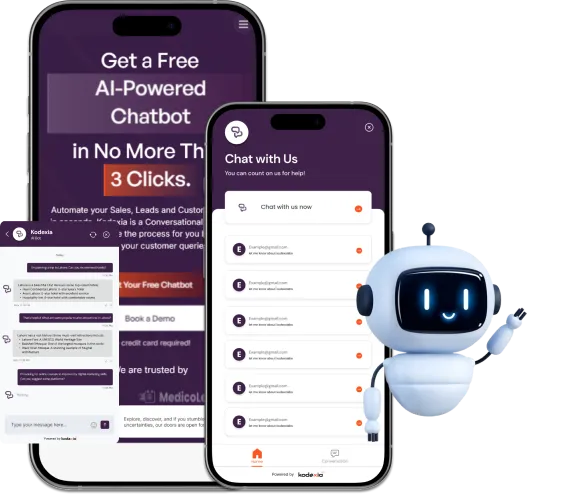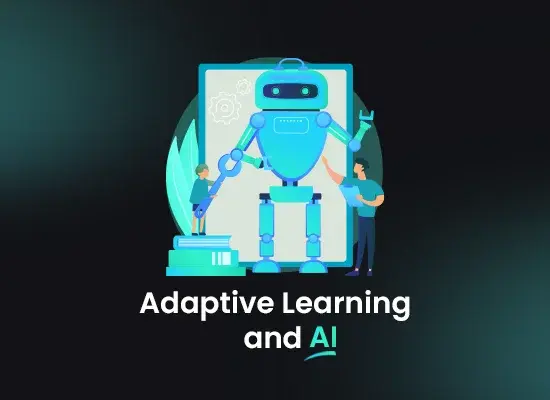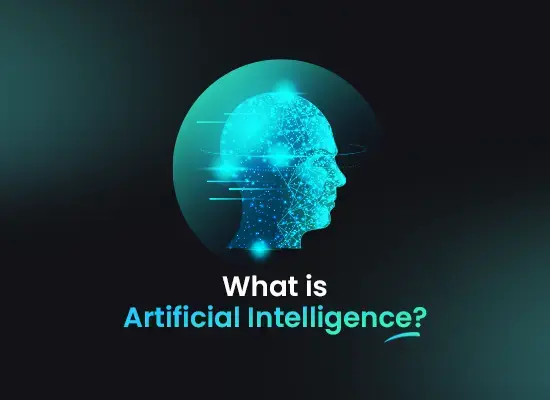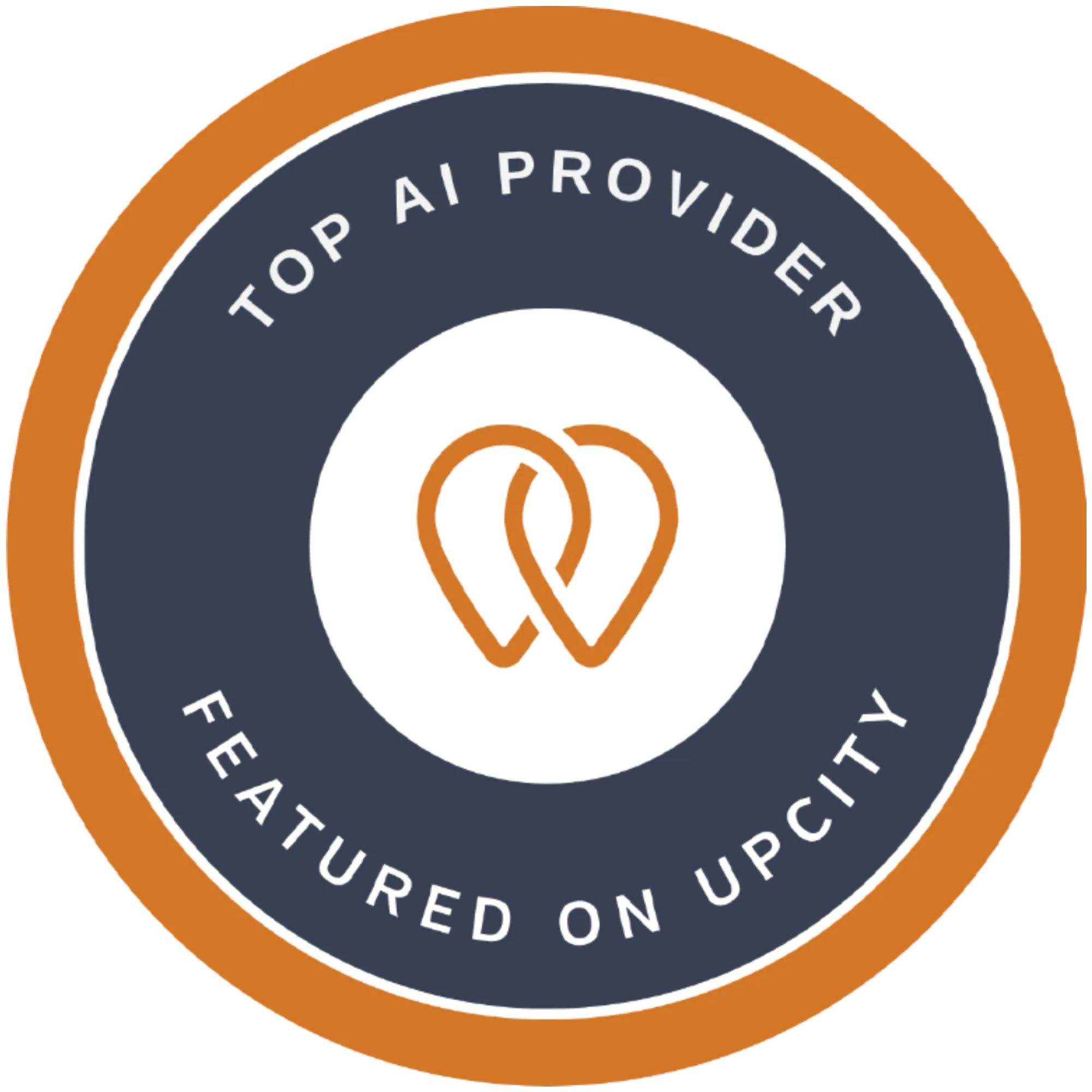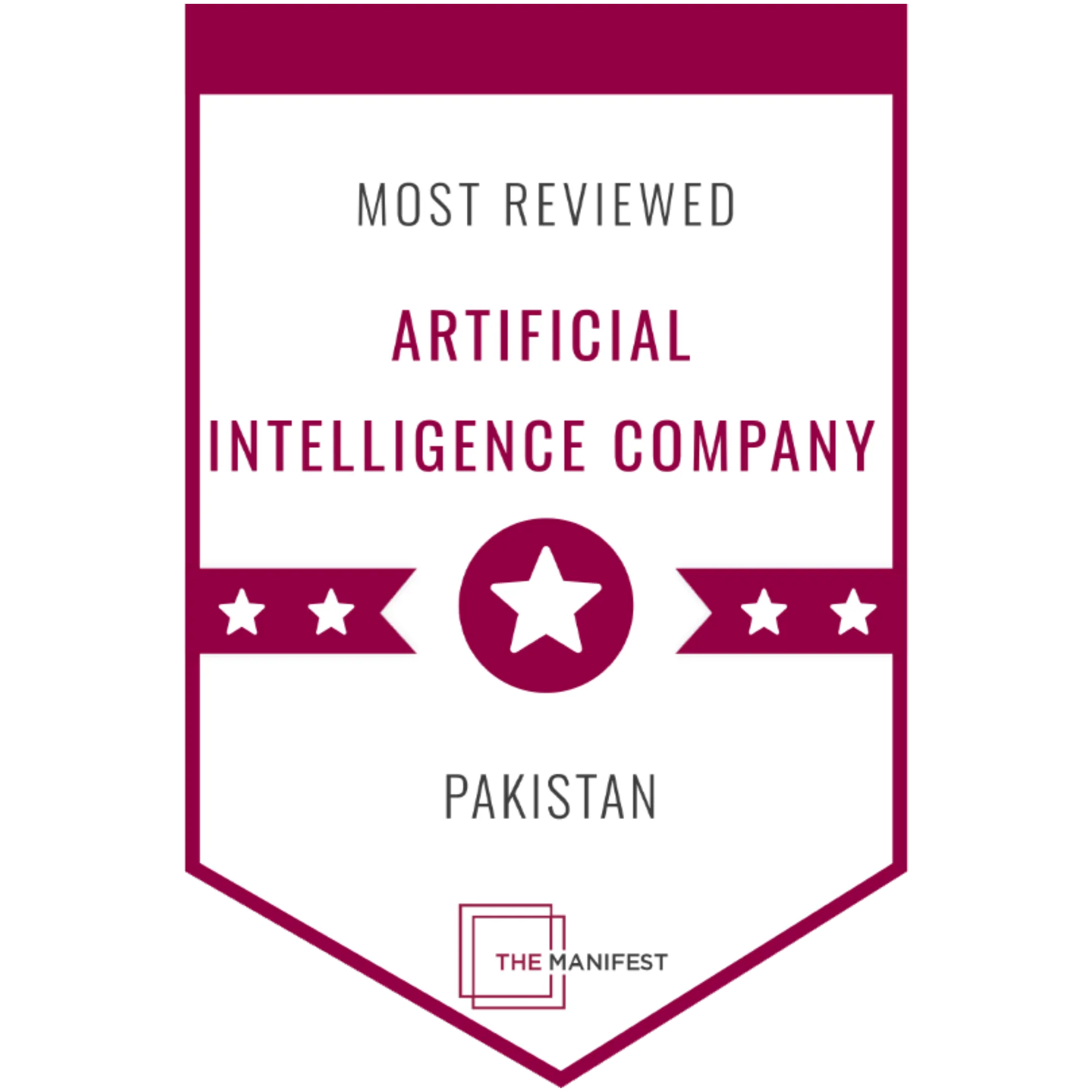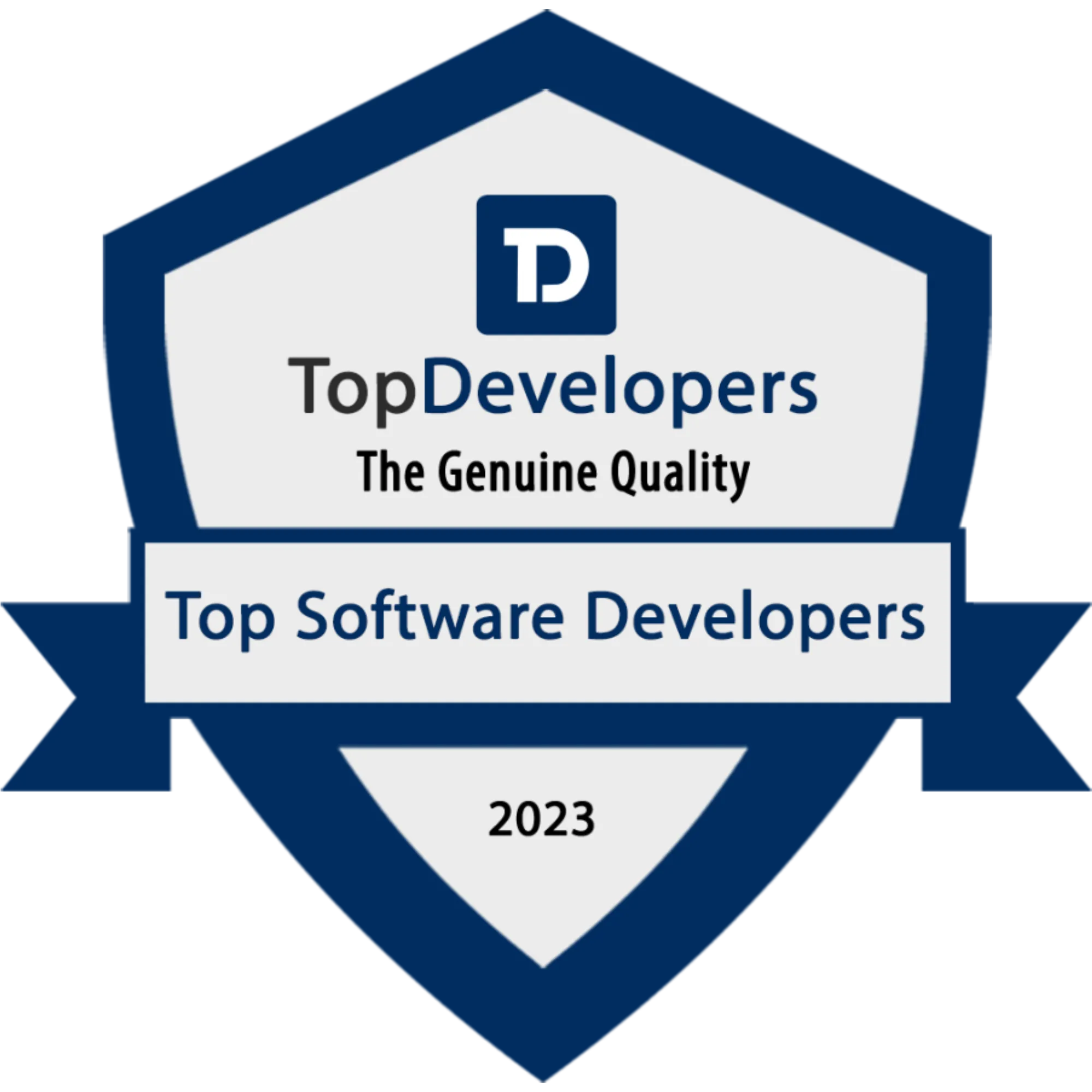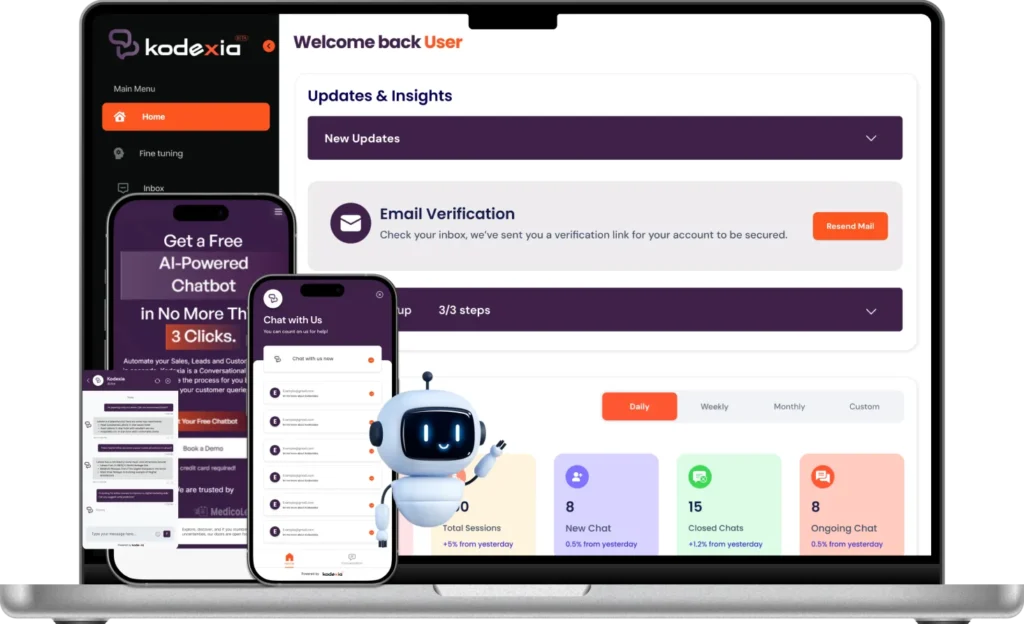Proactive Healthcare: How AI is Making Wearable Technology Smarter?
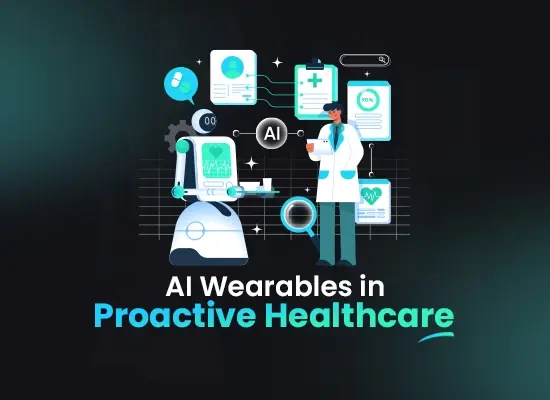
Contents
For years, trackers and smart devices have been companions on our wrists, faithfully logging steps, heart rate, and sleep patterns. These healthcare wearables have undoubtedly revolutionised personal health monitoring, offering a glimpse into our daily activity levels and overall well-being. However, their capabilities often stop at simple data collection.
Imagine a future where your wearable goes beyond tracking steps and transforms into a proactive healthcare partner. This is the exciting future of Artificial Intelligence (AI) in wearables. By integrating sophisticated AI algorithms, these wearables are poised to become powerful tools for preventative healthcare, chronic disease management, and even remote patient monitoring. This evolution from smart devices to AI-powered healthcare wearables has the potential to fundamentally reshape healthcare delivery, empowering individuals and revolutionising the way we manage our health.
The Rise of Healthcare Wearables:
The past decade has witnessed a surge in the popularity of smart devices. These wrist-worn devices have become ubiquitous, offering users a convenient way to monitor basic health metrics like steps taken, heart rate, and sleep patterns. This ability to self-monitor has undoubtedly empowered individuals to take a more active role in their well-being. However, these wearables primarily function as data collection tools, providing a snapshot of activity levels without much deeper analysis.
This is where Artificial Intelligence (AI) steps in, poised to transform healthcare wearables from simple data collectors into intelligent companions. By integrating AI algorithms, these wearables can analyse the vast amount of data they gather, unlocking a new level of insights into our health. This potential to move beyond basic data collection and generate actionable health information holds immense promise for revolutionising preventative care, chronic disease management, and the overall healthcare landscape.
How AI is Transforming Smart Devices?
The AI integration into smart devices is ushering in a new era of sophisticated health monitoring. Beyond the simple data collection capabilities of traditional wearables, AI unlocks a world of advanced data analysis, personalised health insights, and real-time health monitoring

Advanced-Data Analysis:
Previously, wearables in healthcare provided a basic snapshot of activity levels and vitals. AI changes this game entirely. By applying sophisticated algorithms, AI can analyze the vast amount of information collected by wearables, uncovering hidden patterns and trends that would escape the human eye.
1- Extracting Meaningful Insights:
AI can sift through countless data points like heart rate fluctuations, sleep cycle variations, and activity intensity to identify subtle patterns indicative of potential health issues or areas for improvement.
2- Predictive Analytics:
AI can analyze trends in health data to predict potential health risks, such as cardiovascular issues or sleep disorders. This enables early intervention and preventative measures.
3- Personalized Comparisons:
AI can compare your health data against anonymized datasets or your own historical data to identify changes or track progress towards personal goals.
Personalised Health Insights:
Imagine having a personalised health coach constantly monitoring your vitals, analysing your activity patterns, and offering tailored recommendations. This is the future envisioned with AI-powered healthcare wearables. By analysing user data and preferences, AI can generate personalised health insights and actionable recommendations.
1- Optimising Workouts:
AI wearables in healthcare can analyse activity data and recommend personalised workout plans designed to achieve specific fitness goals, whether building muscle, improving endurance, or increasing daily activity levels.
2- Sleep Optimisation:
AI can delve deeper into sleep data, analysing sleep stages and identifying patterns that might indicate sleep disorders or suggest strategies for improved sleep hygiene.
3- Nutritional Guidance:
AI can analyse trends in blood pressure or blood sugar readings, coupled with activity data, to recommend dietary adjustments or suggest consulting a doctor.

Real-Time Health Monitoring:
The ability to monitor health vitals in real time offers a significant advantage in preventative healthcare. AI-powered healthcare wearables are making this a reality. AI algorithms can continuously analyse vital signs and health conditions, enabling faster intervention and potentially life-saving outcomes.
1- Continuous Monitoring:
AI wearables in healthcare can continuously monitor heart rate and rhythm, blood oxygen levels, or even physiological signals indicative of potential falls, enabling early detection of health issues.
2- Real-time Alerts:
AI-powered medical wearables can trigger real-time alerts for users or caregivers in case of irregularities in vital signs, prompting them to seek medical attention immediately.
3- Chronic Disease Management:
AI-powered wearables in healthcare can continuously monitor health markers in individuals with chronic conditions, allowing for adjustments to medication or lifestyle habits based on real-time data. This is only possible by using AI in medicine analytics.
Stress Management and Mental Wellbeing:
AI-powered wearables in healthcare have the potential to revolutionise mental health monitoring and intervention. By analysing physiological markers like heart rate variability, skin conductance, and sleep patterns, AI can identify potential signs of stress or anxiety.
1- Stress Detection:
AI can analyse physiological data to identify patterns indicative of stress and alert users to take proactive steps towards relaxation, such as deep breathing exercises or meditation prompts.
2- Personalised Relaxation Techniques:
Based on user preferences and responses, AI can recommend relaxation techniques tailored to the individual, promoting mental well-being and reducing stress levels.
3- Mood Tracking and Management:
AI can help users track their mood patterns over time and identify potential triggers for negative emotions. This information can be used to develop better-coping mechanisms and improve overall mental health.
Advanced Biometric Authentication and Security:
Security and user privacy are paramount with wearables collecting a vast amount of personal health data. AI can play a crucial role in enhancing security measures.
1- Continuous Authentication:
AI can employ advanced biometric authentication techniques, such as heart rhythm analysis or voiceprint recognition, for continuous and secure user verification.
2- Anomaly Detection:
AI algorithms can monitor for unusual data patterns or attempted unauthorised access to user data, raising security alerts and preventing potential breaches.
3- Data Encryption:
AI can be integrated with advanced encryption techniques to ensure user health data remains secure both on the device and during transmission to cloud storage.
Integration with Wearables in Healthcare and Medical Wearables:
The future of AI-powered wearables in healthcare lies in seamless integration with other smart technologies. Imagine a wearable that can adjust the temperature in your home based on your sleep data or communicate with a smart inhaler to optimise delivery for asthma management.
1- Smart Home Integration:
AI-powered wearables can connect with smart home devices to adjust lighting, temperature, or even music based on user health data and preferences.
2- Interoperability with Medical Wearables:
AI-powered devices can communicate with implanted medical wearables or smart home wearables, providing a more comprehensive picture of a user’s health and enabling real-time data exchange with healthcare providers.
3- Personalised Healthcare Ecosystems:
AI-powered wearables can become the cornerstone of personalised healthcare ecosystems. By integrating the latest artificial intelligence applications related to various health and wellness, wearables can create a holistic view of an individual’s health, allowing for seamless data sharing with healthcare providers and enabling the delivery of personalised care plans.
Proactive Disease Detection and Prevention:
The ability of AI to analyse vast amounts of health data opens doors for proactive disease detection and prevention. By identifying subtle changes in health patterns, AI can predict potential health risks before symptoms even arise.
1- Early Intervention:
AI can analyse trends in health data to predict the onset of chronic conditions like heart disease or diabetes, allowing for early intervention and preventative measures.
2- Personalised Risk Assessments:
AI can generate personalised risk assessments for various health conditions based on individual health data and lifestyle factors. This empowers users to take proactive steps towards a healthier lifestyle and potentially mitigate future health risks.
Benefits of AI-powered Wearable Technology:
The integration of AI into wearable technology unlocks a multitude of advantages, fundamentally reshaping the landscape of personal health management. Let’s explore some of the key benefits of AI-powered wearables:
Proactive Health Management:
AI-powered wearables transform from data collectors into proactive health companions. By analysing user data, AI generates personalised recommendations on sleep hygiene, dietary adjustments, or consultations with healthcare professionals. This empowers individuals to take a more active role in managing their health, fostering a preventative approach to well-being. Furthermore, AI-powered wearables can set personalised goals and track progress, providing ongoing motivation and promoting healthy habits.
Improved Chronic Disease Management:
For those living with chronic conditions, AI-powered wearables offer invaluable support. These wearables continuously monitor vital signs and health markers, providing real-time data that empowers individuals to manage their conditions more effectively. Diabetic individuals can benefit from real-time blood sugar level monitoring, allowing for adjustments to medication or diet throughout the day. Similarly, AI can monitor heart rate and rhythm in individuals with cardiac concerns, potentially detecting arrhythmias and prompting timely intervention. This continuous monitoring empowers individuals to take a more proactive approach to managing their chronic conditions, potentially preventing complications and improving overall health outcomes.
Remote Patient Monitoring:
AI-powered wearable technology holds immense potential for revolutionising remote patient monitoring and diagnostic medical imaging. These wearables can continuously collect health data and transmit it securely to healthcare providers, enabling them to monitor patients remotely and intervene when necessary. For instance, AI-powered wearables can monitor vital signs in elderly patients living alone, allowing healthcare providers to detect potential health issues early on.
Similarly, these wearables can be used to monitor patients recovering from surgery or undergoing treatment at home, facilitating a smoother transition from hospital to home care. By enabling remote patient monitoring, AI-powered wearables have the potential to reduce hospital readmission rates, improve patient outcomes, and potentially reduce healthcare costs associated with traditional in-person monitoring methods.
Challenges and Considerations:
The transformative potential of wearable technology is undeniable. However, it’s crucial to acknowledge the challenges and considerations that accompany this exciting new frontier in healthcare:
Data Privacy and Security:
AI-powered wearables collect a vast amount of personal health data. Ensuring robust security measures and clear data privacy policies is paramount to safeguarding user trust.
Algorithm Bias and Accuracy:
AI algorithms are only as good as the data they are trained on. Bias in training data can lead to inaccurate or discriminatory health insights. Ensuring fairness and accuracy in AI algorithms for healthcare applications is critical.
User Adoption and Integration:
For AI-powered wearables to reach their full potential, widespread user adoption is necessary. Challenges include user concerns about privacy, battery life limitations, and integrating wearables seamlessly into daily routines.
Regulatory Landscape:
The rapid evolution of AI wearables necessitates the development of clear regulatory frameworks. These frameworks should ensure data privacy, user safety, and the ethical application of generative AI in healthcare.
Accessibility and Equity:
Cost considerations and potential health literacy gaps could limit access to AI-powered wearables for certain populations. Ensuring equitable access and promoting digital literacy are crucial for maximising the benefits of this technology.
Addressing these challenges through collaborative efforts between developers, healthcare professionals, policymakers, and users is essential to ensure the responsible and ethical development of AI-powered wearables. By prioritising data privacy, user trust, and algorithmic fairness, we can harness the power of AI to revolutionise healthcare and empower individuals to take control of their well-being.
The Future of AI-powered Wearables:
The future of AI-powered wearables shimmers with exciting possibilities, promising to push the boundaries of personalised health management and preventative care. Here’s a glimpse into what the coming years might hold:

Non-invasive Blood Sugar Monitoring:
Imagine a future where diabetics can monitor blood sugar levels continuously and painlessly through a wearable device. AI algorithms could analyse trends and suggest real-time adjustments to medication or diet, significantly improving diabetes management.
Mental Health Monitoring and Intervention:
AI-powered wearables have the potential to revolutionise mental health by monitoring physiological markers of stress and anxiety. Early detection coupled with personalised interventions, like relaxation techniques or prompting users to seek professional help, could significantly improve mental well-being.
Integration with AI-powered Medical Devices:
The future holds immense promise for seamless integration between AI-powered wearables and other medical devices. Imagine smart inhalers that communicate with wearables to monitor asthma symptoms and adjust medication delivery, or pacemakers that transmit real-time data to physicians for remote monitoring.
Enhanced User Experience:
As technology advances, AI-powered wearables will likely become even more comfortable, discreet, and user-friendly. Battery life will improve, and functionalities will expand, offering a truly holistic approach to health monitoring.
Customer Segmentation:
AI-powered algorithms can segment customers based on various criteria, such as demographics, behaviour, interests, or preferences. This helps businesses understand their customer base and target specific segments with personalised marketing strategies.

Conclusion:
The integration of AI into wearable technology marks a turning point in personal health management. By transforming wearables from data collectors into proactive health companions, AI empowers individuals to take charge of their well-being. From personalised health insights and real-time health monitoring to stress management and disease prevention, the potential applications of AI in wearables are vast and constantly evolving.
However, challenges such as data privacy, algorithm bias, and user adoption require careful consideration. Through collaborative efforts between developers, healthcare professionals, policymakers, and users, we can ensure the responsible development and deployment of AI-powered wearables.
As we look towards the future, the possibilities are brimming with excitement. Imagine a world where AI-powered wearables seamlessly integrate with our lives, fostering a preventative approach to health and empowering us to live healthier, longer lives. The future of health is on our wrists, and AI is the key that unlocks its potential.


